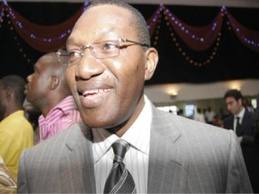Syria conflict: 'Chemical attacks' near Damascus
Chemical weapons attacks have killed
dozens on the outskirts of Damascus,
Syrian opposition activists claim.
Rockets with toxic agents were launched
at the suburbs of the Ghouta region in
the early hours of Wednesday morning,
they say.
Footage uploaded to YouTube by
activists shows many people being
treated in makeshift hospitals.
A team of UN inspectors arrived in Syria
on Sunday to probe earlier allegations of
chemical weapons use.
The attack took place as part of heavy
government bombardment of the region
surrounding Damascus, where
government forces have been trying to
drive out rebel forces.
Videos uploaded from the scene show
victims, including many children, having
convulsions. Others are apparently
immobile and have difficulty breathing.
The BBC has not been able to
authenticate the footage fully, but based
on additional checks made, it is believed
to be genuine.
The number of casualties is much higher
than in previous allegations of chemical
weapons attacks.
It is not clear whether the UN inspectors
will look into the latest allegations. They
are due to investigate three other
locations, including the northern town of
Khan al-Assal, where some 26 people
were killed in March.
Syrian state news agency Sana said the
reports of the attack were "baseless",
quoting a "media source".
The reports were "an attempt to divert
the UN chemical weapons investigation
commission away from carrying out its
duties", Sana said.
'Horrific' footage
The latest incident throws up more
questions than answers, the BBC's
Middle East Editor Jeremy Bowen
reports.
Many will ask why the government would
want to use such weapons at a time
when inspectors are in the country and
the military has been doing well militarily
in the area around Damascus, he says.
Some will suspect that the footage has
been fabricated, but the videos that have
been emerged would be difficult to fake,
he adds.
Hamish de Bretton-Gordon, a former
commanding officer at the UK's Joint
Chemical Biological Radiological Nuclear
Regiment, told the BBC's Today
programme that the footage was
"horrific" and agreed that it would be
"very difficult to stage-manage".
If the UN inspectors were able to get to
the scene, they should have the
equipment to identify the chemical that
has been used, if any, Mr de Bretton-
Gordon said.
Residue from any agent used should be
detectable at the scene for a period of
two to three days or possibly a week, he
said.
Both the rebels and government forces
have accused each other of using
chemical weapons during the conflict.
It is not possible to independently verify
the claims.
Syria is widely believed to possess large
undeclared stockpiles of mustard gas
and sarin nerve agent.




Comments
Post a Comment